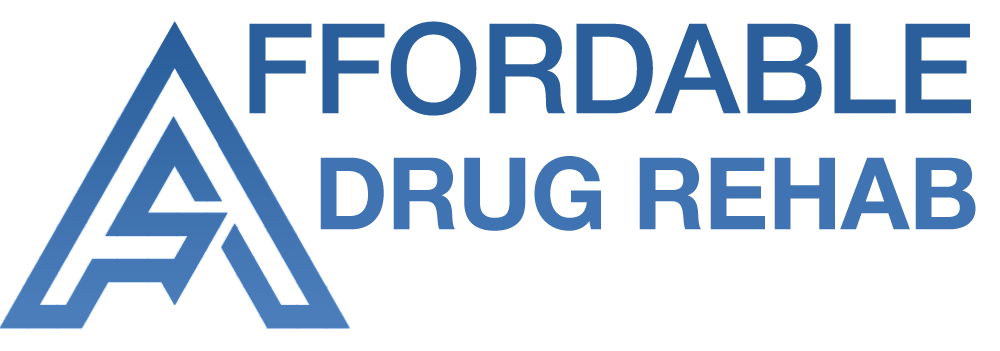Give us a call1 (888) 850-3656
Understanding the Accessibility of Affordable Drug Rehab Treatment
At our affordable drug rehab Southern California center, we’re committed to demystifying the process of addiction treatment and providing accessible options for everyone. We understand that taking the first step towards recovery can be challenging, especially when concerns about costs arise. That’s why we’ve made it our mission to offer affordable care without compromising on quality. Let’s address some common questions that come up regarding affordable drug rehab treatment.
How long does the Marchman Act last in Florida?
Under the Marchman Act in Florida, an individual can be held for assessment for up to five days. Following the assessment, if further treatment is deemed necessary, a court can order a treatment plan that typically lasts up to 60 days. However, this can be extended depending on the individual’s progress and circumstances. Our aim at Affordable Drug Rehabs is to provide continuous support for individuals under the Marchman Act by offering affordable treatment options that align with the court’s directives, ensuring a seamless transition from legal mandate to personal commitment to recovery.
What are the four types of recovery?
The journey to recovery is multifaceted, and it is generally acknowledged that there are four main types: emotional, mental, physical, and spiritual. Each represents a critical aspect of the healing process. Emotional recovery focuses on managing feelings and developing healthy coping mechanisms. Mental recovery is about breaking the cycle of addiction through changes in thought patterns and behaviors. Physical recovery deals with detoxifying the body and rebuilding physical health. Lastly, spiritual recovery often involves finding purpose and connection, which can be unique to each individual. At Affordable Drug Rehabs, we curate treatment plans that address all these dimensions, offering a holistic path to long-term sobriety that is both effective and financially accessible.
What happens during an intervention?
An intervention is a structured conversation between a person struggling with addiction and their loved ones, usually facilitated by a professional. During an intervention, family and friends express their concerns and the impact of the individual’s behavior in a compassionate and non-confrontational manner. The goal is to encourage the person to acknowledge their addiction and accept treatment. At Affordable Drug Rehabs, we can offer guidance on arranging an intervention and can connect families with experienced interventionists to ensure the process is as supportive as possible.
What do you say to someone who just got out of rehab?
When someone emerges from rehab, positive reinforcement is key. A simple “I’m proud of you” can be profoundly affirming. Acknowledge their strength and courage in facing their challenges and offer your continued support. At Affordable Drug Rehabs, we understand the power of encouragement, and we emphasize the importance of a supportive network in maintaining sobriety. We also offer aftercare programs to help both individuals and their loved ones navigate the post-treatment phase.
What are some common misconceptions about the cost of drug rehab treatment?
One of the most prevalent misconceptions is that high-quality drug rehab is only available to those who can afford expensive treatment. This is not the case. At Affordable Drug Rehabs, we provide a range of economical options, from sliding-scale fees to programs covered by insurance plans under the Affordable Care Act. Another misconception is that lower cost equates to lower quality. We proudly dispel this myth daily through our commitment to evidence-based therapies and personalized treatment plans that are both accessible and effective.
How can outpatient programs provide an affordable yet effective solution for recovery?
Outpatient programs are a cornerstone of affordable treatment because they allow individuals to maintain their daily commitments while receiving therapy and support. These programs can be particularly cost-effective, not only because they often have lower fees than inpatient options but also due to the flexibility they offer. At Affordable Drug Rehabs, our outpatient services include a full spectrum of care, from individual therapy sessions to support groups, ensuring that each client receives comprehensive treatment tailored to their lifestyle and financial situation.
How does personalized care influence the effectiveness of affordable drug rehab?
Personalization is key to treatment that is not just affordable but also successful. By tailoring each program to the individual’s needs, we optimize the path to recovery in a way that is both economically and therapeutically efficient. This approach allows us to adjust services as necessary and gives our clients the best chance at long-term sobriety. At Affordable Drug Rehabs, our experienced staff works closely with clients to develop individualized plans that align with their unique goals, challenges, and financial capabilities.
Why is relapse prevention education a critical component of affordable drug rehab?
Relapse prevention education is crucial because it equips individuals with the tools to recognize potential triggers and implement coping strategies to maintain sobriety. At Affordable Drug Rehabs, we consider this education an investment in the future of our clients. It’s not enough to simply provide treatment; we must also prepare individuals for the challenges that lie ahead. By making relapse prevention a central element of our affordable programs, we help our clients build a strong foundation for a lasting recovery.
Remember, the journey to recovery is unique for everyone. If you have more questions or need additional information about affordable drug rehab options, please reach out to us. We’re here to help you or your loved one take the next step towards a healthier, substance-free life.
Resources
- National Institute on Drug Abuse (NIDA): Provides scientific information about drug abuse and addiction. www.drugabuse.gov
- Substance Abuse and Mental Health Services Administration (SAMHSA): Offers information on substance abuse treatment and prevention. www.samhsa.gov
- Centers for Disease Control and Prevention (CDC): Offers information on health-related topics, including substance abuse and mental health. www.cdc.gov
- National Institutes of Health (NIH): A part of the U.S. Department of Health and Human Services, it is the nation’s medical research agency. www.nih.gov
- American Psychological Association (APA): Provides resources on psychological issues, including substance abuse. www.apa.org
- National Alliance on Mental Illness (NAMI): Offers support and education for people with mental illness and their families. www.nami.org
Affordable Drug Rehab Treatment Affordable Drug Rehab Southern California

